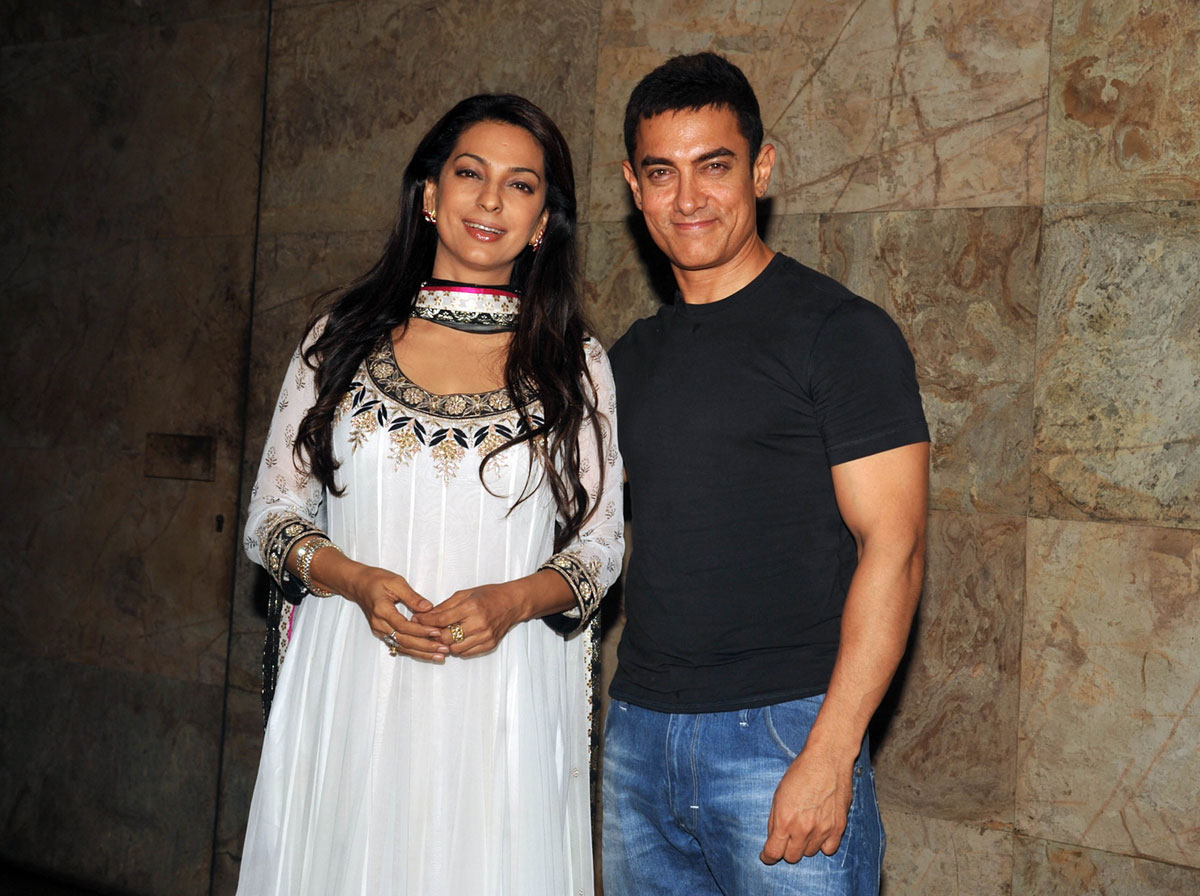30 Years of QSQT: The Alternate Happy Ending that Never Made it to the Screen
File photo of Juhi Chawla and Aamir Khan (r) at a special screening of “Qyaamat Se Qyamat Tak” directed by Mansoor Khan in Mumbai, April 29, 2013. (AFP/Getty Images)
Mansoor shot two endings just to please his father but finally decided to go with the sad one as he felt it fit the story better.
The film, which will turn 30 on April 29, was a Hindi adaptation of ‘Romeo and Juliet’ which chronicled the story of young lovers, Raj and Rashmi, who meet a tragic end after eloping from their homes.
“There were many differences between us, lots of fights, arguments, we wouldn’t talk for days because I was struggling to communicate,” Mansoor told PTI about the film which turned Aamir Khan and Juhi Chawla into overnight stars.
The director first shot the tragic end and then the happy one, but something was “falling apart,” he says.
“It was ridiculous. It didn’t fit, I could feel that while I was shooting and writing it. The actors themselves were finding it hilarious that suddenly instead of these two dying, the girl’s father dies. But because my father had much more experience, I wrote and shot that,” Mansoor says.
Things became more complicated when during the pre-release trials, the youngsters loved the tragic end, while the seniors favored a happy one.
Mansoor believes his father’s decision to have a happy ending had something to do with the failure of his film “Baharon Ke Sapne,” which was a tragic story.
There was a reputation at stake and Hussain did not want to take any chances with “QSQT,” which he not only produced, but also wrote.
The director says he was developing the script of “Jo Jeeta Wohi Sikandar” as his debut when he was called by his father, who had finished writing the story of “QSQT” and wanted him to direct with Aamir in lead debut role.
“We sat in our office, I think Aamir was there too. It wasn’t spoken loudly but I was also thinking of Aamir when I was writing ‘Jo Jeeta…’ and my dad was thinking of launching Aamir in ‘QSQT.’ We heard it and I liked it very much,” Mansoor says.
But he wanted to make some changes in his father’s script. Once on board, he changed almost “50 percent of the script.”
While all the dramatic scenes the ones between Aamir and Dalip Tahil and Alok Nath were Nasir’s, Mansoor brought in a fresh perspective – from the youthful camaraderie, song situations, to the famous ‘getting lost in the forest’ sequence.
Music of the film, composed by Anand-Milind, became a major talking point but sharing the backstory of the hugely popular “Papa Kehte Hai” song, Mansoor says if he had his say, he would have removed the word ‘papa’ from the number.
“I cringed at the word ‘Papa.’ When Majrooh saab (Sultanpuri) first wrote the lyrics, I told him that the thought was ‘Everyone says he or she will do this or that, but I have no idea what I am going to do.’ So, he wrote, ‘Papa kehtein hain bada naam karega.’ My problem was with that word.
“But he said, ‘What else will you say? But to me ‘papa’ sounded weird,” he adds.
Before the film hit the theatres, Aamir went and stuck the posters of “QSQT” on autos.
“Aamir is that kind of person. I went to America when the film released. When I came back, I was surprised to see how big a hit it had become. Aamir had left no stone unturned to ensure that people saw the film. So, he used to go at night and put up posters!”
Mansoor says the last time he saw “QSQT” was on its 25thanniversary, when Aamir and the whole cast were invited.
He feels the film has managed to retain its magic even though there are parts that he regrets today.
“I loved the first half, but in the middle of the second half, I was cringing. I hadn’t done a good job. I feel I had put too much background music and it was irritating me. I think the first half works strongly even today,” Mansoor says, before adding, “And the end. I love the end.”


